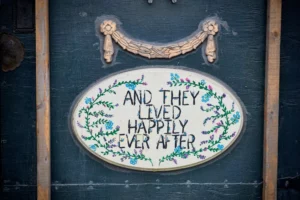I started dating my husband Kevin in March, 2009, and by April we knew we wanted to get married. We talked about how we couldn’t get engaged until after his brother’s wedding in May and discussed how fall seemed like the ideal time for a wedding. So it was nothing short of miraculous that Kevin still managed to surprise me with his proposal in early June (we hadn’t even gone ring shopping).
Surprise marriage proposals are fewer and farther between these days, according to the Wall Street Journal article “How the Marriage Proposal Became a Negotiation.”
Those romantic tales that get passed among friends and relatives—”One day he just showed up with a ring! I was completely surprised!”—are vestiges of the past. We’ve gone from popping the question to a long conversation, hammering out the details of when and how the engagement will happen.
Amanda Miller, a sociology professor at the University of Central Oklahoma, conducted a study about how proposals are made among cohabiting couples. The result, titled “Waiting to Be Asked,” found that couples not only work together as a team to set the date. Ms. Miller says some women script the proposal first, telling their boyfriend something like: “I’d always wanted to be proposed to on Christmas morning in front of family.”
That example strikes me as a little extreme (at least I haven’t heard of anything like it from among my own friends), but most recently engaged and married couples I know did have some pragmatic conversation about marriage before the proposal came to pass. And how about this one: After Kevin asked my dad for permission to marry me, my dad requested that Kevin repeat his speech that night at dinner so that my mom could hear it. (Honestly, I loved getting to hear the reasons Kevin wanted to marry me, but that was more than a month before the proposal.)
Women seem to have more control of — or at least involvement in — where the relationship is heading in this open-conversation about marriage scenario, but guys still hold the ultimate power:
While there is more negotiation and compromise about the marriage timetable, Ms. Miller says her research showed that the man still holds the power to shut down the marriage conversation. Men in their 20s and 30s don’t seem to view the backroom negotiation as emasculating or ceding their turf to a generation of empowered women either. On the contrary—all this talking may have simply eliminated the only scary aspect of a proposal for a man: that the woman will say no.
I asked Kevin if he ever doubted I’d say yes when he popped the question. “Nope,” he said simply. But then, he had no reason to worry, so I suppose it doesn’t really matter.











